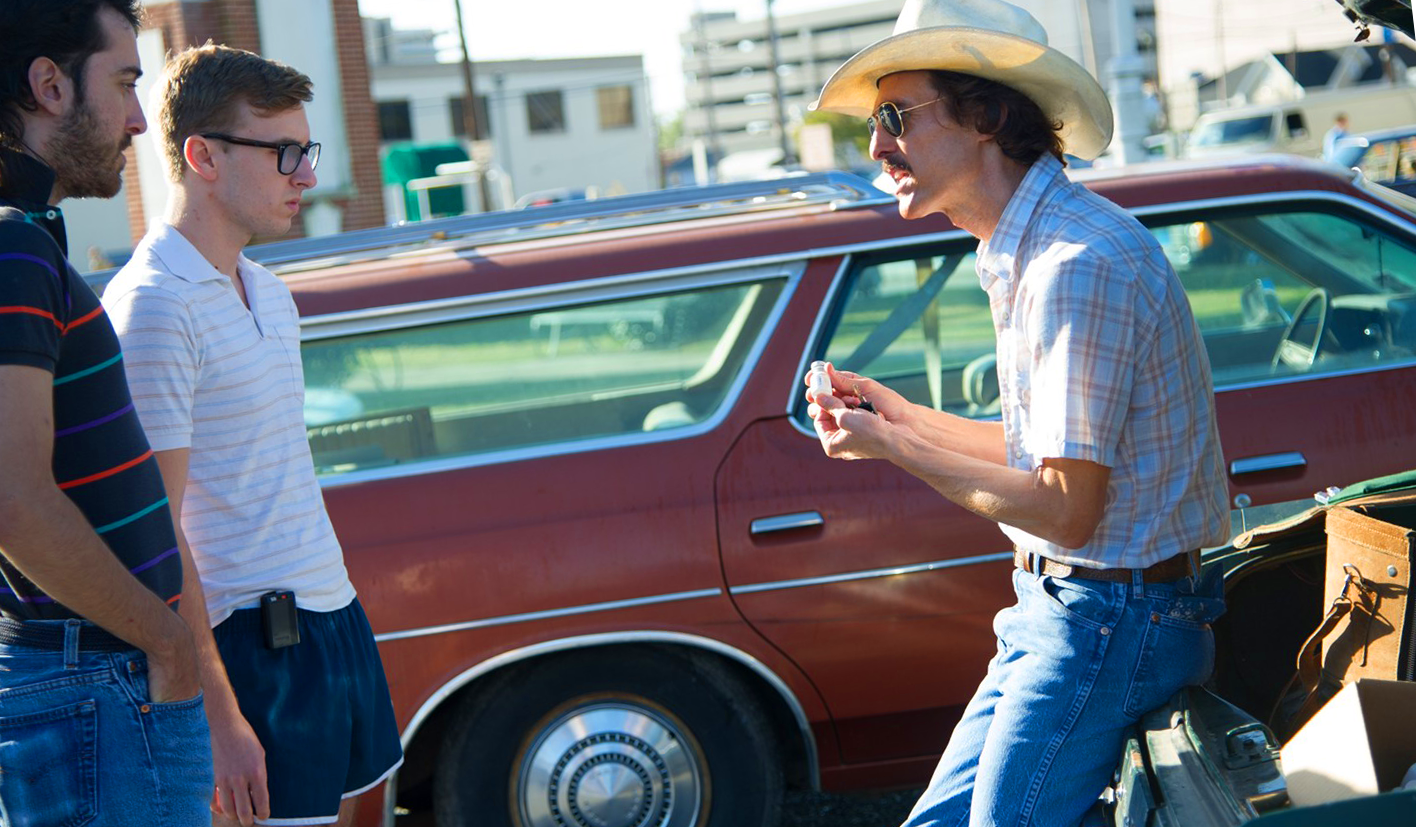There was a time when Matthew McConaughey was considered the next big thing. His golden boy looks and louche southern charm stood out in the excellent 1996 adaptation of John Grisham’s A Time to Kill, propelling him onto the Hollywood A-list. Further lead roles appeared with the likes of Contact, U-571 and EDtv. These were solid if unspectacular films, relying more on his charismatic presence than anything else, but all signs pointed upwards.
Unfortunately for McConaughey, however, he would spend much of the next decade, either out of necessity or indifference, populating drab, generic rom-coms, each one indistinguishable from the next. Before long his career had taken an underwhelming turn for the worse.
Mercifully, those days now seem long behind him, such is the upswing in a résumé which once seemed close to collapsing under the weight of its own mediocrity. 2011’s The Lincoln Lawyer saw the return of his edgy grin and magnetic screen presence — aided no doubt by Michael Connelly’s muscular source material — and his appearance in last year’s Mud, an epic Southern coming-of-age tale, was simply astonishing.
His character, a mysterious outlaw of rigid faith and homely philosophy, was one worthy of McConaughey’s obvious abilities and thus it should be no surprise that his equally towering presence in Dallas Buyers Club has attracted the kind of plaudits likely to render an Oscar win a mere formality.
This latest entry in his renaissance is a superlative one; an extraordinarily nuanced drama placed firmly within the AIDS panic of the mid-Eighties. It is a story about life and the average man’s eagerness to hold on to it. As that average man, the one-time matinée idol has undergone a stunning rebirth. In an industry of constantly shifting certainties, McConaughey is arguably the most exciting actor presently working in high-end American cinema.
His Ron Woodroof is a minor gambler and rodeo rider who spends his weekends at the bullring, happily enjoying the company of countless women through a haze of cheap drink and cheaper drugs. An accident at his day job sees him wind up in hospital where, much to his outraged surprise, he is discovered to be HIV positive. Before settling on the chilling truth, he runs the full gamut of homophobic denials; unsurprising perhaps given the Texas rodeo circuit’s less than progressive views on, well, anything in 1985.
It is interesting to note that Woodroof’s orientation is not an issue beyond the illness his sexual proclivities have brought down upon him. As a straight man with a reckless attitude to contraception, it his demographic which dominates the AIDS statistic tables. The moment when he realises the likelihood of contraction, summed up in a few brief shots, is symbolic of the naivety at the time.
Forced from his job and shunned by an ignorant social circle, Woodroof’s luck is running out. With typical Texan fortitude, he resists the 30-day timer placed upon him by his doctors, including Jennifer Garner’s quietly brilliant Eve, and resolves to beat the clock.
What plays out is both amusing and deeply moving, driven from beginning to end by McConaughey’s virtuoso dedication to the role. With his Lone Star drawl, he is very much at home here and his weight loss (hinted at in his kinetic Wolf of Wall Street cameo) is the kind of method acting to which awards ceremonies are usually sympathetic.
Yet he never rests on his laurels. Woodroof comes in somewhere between rakish, opportunistic scoundrel and unlikeable idiot. His business venture — importing HIV and AIDS drugs from Mexico to be dispensed to the dues-paying members of his eponymous club — is amusingly sneaky in its conception and while he is undoubtedly helping people without access to mainstream treatment, he’s also making a lot of cash. As a fellow sufferer, however, he is not one to exploit the desperate numbers who turn up at the door of his sleazy motel headquarters. As much as Woodroof may wish to ignore it, he possesses a genuine devotion to a community excluded by the system.
It is a system he seeks to undermine almost from the outset. Blunt and loud, he is, nevertheless, intelligent enough to sniff out a profitable angle and the arch hypocrisy at play in the American healthcare jungle. There is more than a whiff of corruption in the way doctors are handsomely remunerated by Big Pharma for pushing a questionable product on HIV patients. At the same time the federal government — recipients of such largesse also, goes the claim — pursue Woodroof’s importation of his ‘merely unapproved’ medicines with a vengeance. ‘You’re the drug dealer’ he screams at one stuffy nemesis.
In an age of marriage equality, the film’s dark cloud of homophobia is especially topical and director Jean-Marc Vallée faces it with admirable maturity. His is not a work of redemption, of a central figure’s magical revelation. Instead Woodroof’s actions are allowed to speak for him. In many ways he could be nothing but a bigot, coming, as he does, from a world of minimal enlightened thinking.
On the other hand, his diagnosis upends his priorities and shakes his beliefs to the point where he no longer cares for the pettiness of crass gay bashing. In this subtle transformation, as well as in his commercial operation, he is ably assisted by Jared Leto’s suave, wonderfully androgynous transexual Rayon. It is a performance of rare class and quite stunning bravery. Indeed based on this, Leto is nothing if not deserving of the acclaim swirling around him at present. From an affable hospital patient to the emaciated victim of a truly horrifying sickness, Leto’s charming interplay with the gruff Woodroof, and their eventual co-dependence, forms the picture’s unbending spine.
An edited version of this article was first published here.

No comments:
Post a Comment
Note: only a member of this blog may post a comment.